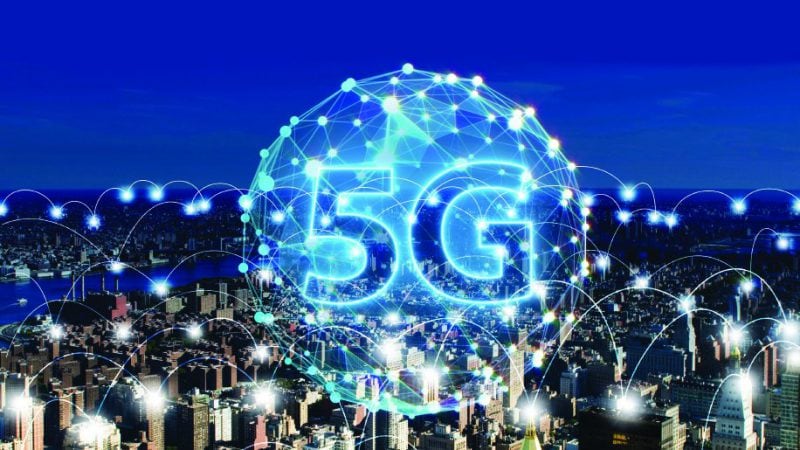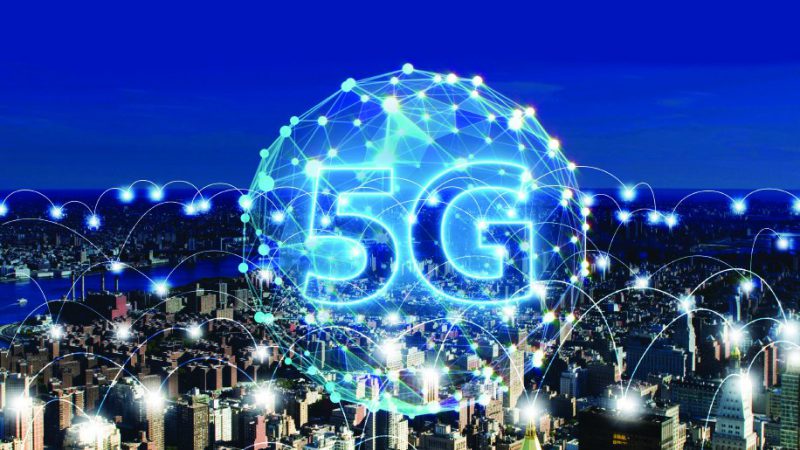The 5G Factor
The next generation of telecommunications is coming to a hotel near you – and changing the stay as we know it
February 28, 2020


In the beat-your-chest world of technology, the natural evolution from a 4G network to a 5G network is akin to The Terminator’s progression from cybernetic organism to a robot made of liquid metal. Sure, the shape-shifting killing machine has more bells and whistles, but the “old but not obsolete” model still manages to save the day.
So although 5G is the buzzword for the future of hospitality, most owners and operators are sticking with 4G until they can be sure that 5G technology can catch up to its expectations. For one thing, 5G is not yet available in all locations. Second, not all buildings are set up to accept this emerging technology. Third, there have been health concerns around the type of radiation emitted by the 5G dome.
All that said, what exactly is meant by 5G? Think of it as technology through the ages — or in this case, generations: 1G delivered analog voice. 2G introduced digital voice. 3G brought mobile data. 4G LTE revolutionized mobile network capabilities. The 5th Generation is aptly named 5G, able to connect devices to other devices practically in real time.
The covered areas, called ‘cells,’ are serviced by individual antennas which every major telecommunication service provider is deploying. The frequency spectrum of 5G is divided into millimeter wavelengths of mid- and low-band, using a similar frequency range as 4G.
Thus, 5G can transmit data up to ten times faster than 4G, reaching speeds of over a gigabit of data per second. The wavelengths have a shorter range even than microwaves, and therefore the cells are limited to a smaller size. Each cell will have multiple antennas, albeit smaller antennas than with previous generations.
These will connect to similar antennas in the paired devices, thus forming a network of data on multiple bitstreams. However, these waves will have difficulty passing through walls and other solid obstructions.
As soon as the obstacles and glitches are ironed out, 5G is set to become the new norm in an increasingly tech-based and tech-reliant world. The possibilities are as boundless as the landscape of human ingenuity, since 5G will be able to support a million devices per square kilometer.
A Different Kind of Welcome
What does this mean for the hotel industry? Of course, even now hotels are already bustling hives of digital devices buzzing around in hopes of connectivity. Properties also faces stiff competition for market share, as travelers seek an immersive and unique experience, and are able to shop around for it.
The upshot is, a list of hotel amenities these days seems more like character traits on a dating site profile than a reason to lay your head down on a foreign pillow. Some hotels are providing augmented reality experiences to guests while others are using virtual reality to alter the vacation experience to fit the unique diversions of individual travelers.
For example, at the Intercontinental Shenzhen, AI robots accompany guests to their rooms where 5G cloud-based computers are available for personal use, or for planning and managing the hotel experience from reservations to room service to business meetings. Huawei provides information and communications technology for the hotel, which includes a network to support the many devices and applications running simultaneously in a setting where hundreds of people are in one place.
Such information and communication technologies, or ICT, puts the emphasis on telecommunication to deliver a better tech experience. High-end hotels serving elite customers have long used ICT to become more digital and intelligent. 5G, however, ups that game exponentially, not only creating better connectivity for communications, but also enabling intelligent connectivity using AI, cloud and more.
Henn Na Hotel in Tokyo Ginza, for instance, uses robot technology to aid in front desk check-in. In New Orleans, the Marquee Resort by Bluegreen Vacations utilizes augmented reality to showcase their cinematic motif, a throwback to the Roaring 20s. Besides the period decor, guests can download the Marquee Hotel app and watch the pictures above the headboard depicting the history of the time come to life through the lens of a hand-held device.
In addition, large portraits in the hallway adjacent to the elevators on each floor are triggered by motion sensors to morph from a still portrait to a live motion – and quite seductive – burlesque-era woman beckoning the guest to proceed down the hallway. The integration of these technologies requires seamless transfer of data since many devices might be operating at the same instant throughout the hotel.
From the first moment in the hotel lobby, the combination of 5G and AI enables swift check-in and checkout through facial recognition, which improves service efficiency and security. This is especially important considering recent reports of security lapses in the hospitality industry that have alerted owners and operators to the concerns. The technology available through 5G will help dispel these worries.
Robots assigned to the front desk provide information, guide guests within the hotel, and offer delivery services, enhancing guest interaction, service quality and customer satisfaction.
Within a hotel room, 5G not only provides guests with faster, more secure Internet access, but can also be used to enhance guest preferences. For instance, CitizenM Hotels allow guests to control their room environment through smart technology. Ambient lighting, images on the TV screen, and privacy settings on window shade controls are just a few applications that will become smoother and more reliable through 5G networks.
Likewise, hotels are implementing more advanced video conferencing platforms, interactive communication, and meeting space augmentations. In this way, 5G will meet guest needs for business and entertainment.
The faster exchanges between devices which 5G allows will redefine the term ‘service’ by addressing requests more expediently. The speed comes from the fact that a network is the caretaker of most of the data exchange, putting less burden on the device itself. This will also increases battery life for the same reason.
Tipping Point Ahead
Envisioning the future, it’s easy to imagine the aloof autonomy of a world on the borderline between paradise and dystopia. However, there is an in-between space in which 5G networks will allow the hotel experience to cross beyond the boundaries of the lobby. Communication through apps linked to the hotel extend the experience to the guests’ leisure time activities. Video and real time can connect travel agent with clients, hotel with guests and guests with each other.
Rental cars are an amenity already offered by many hotels, such as the SLS Hotel in South Beach, FL. Soon enough these vehicles will be autonomous, a technology some experts predict will be the norm as early as 2030. Most major automotive brands have already begun equipping their cars with autonomous technology, which requires cars to be able to communicate with road signs, pedestrians, and each other.
Tesla vehicles use an app, and offer connectivity packages as options for its most in-demand features, such as live traffic visualization, GPS, Bluetooth, long range cameras, radar and touchscreen controls. In fact, the very viability of autonomous vehicles in general will depend on data reliability and speed. Thus 5G is essential for this technology to be fully accepted and deployed.
As the hotel industry continues to adopt fresh ideas and more marketable tools to attract the new traveler cohort and “keep up with the Joneses,” it will be technology, connectivity and integration that drives change and better enables properties to offer the personalization travelers have come to expect.
The Fifth Generation of telecommunications will certainly be a game changer for practically every industry, as will the use of robotics, autonomous vehicles and virtual/augmented reality. Indeed it is a brave new technological world, and the irony of people being better connected yet further isolated can certainly be seen as a bleak omen.
Maybe the world at large can take a page from the book of hospitality, which seems to be using this emerging technology to truly break down the walls between us.




